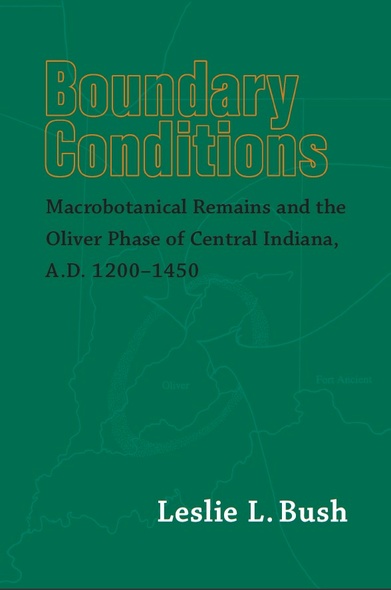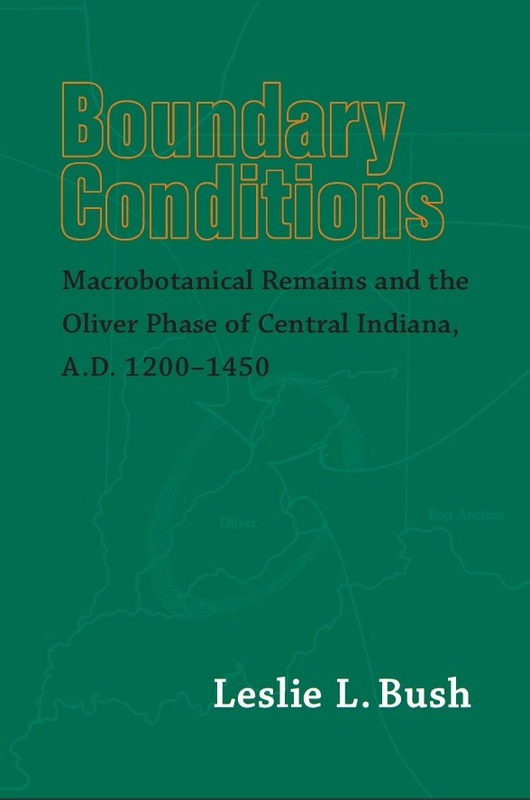Boundary Conditions
Macrobotanical Remains and the Oliver Phase of Central Indiana, A.D. 1200-1450
Prehistoric plant use in the Late Woodland Period of central Indiana
This book explores the extent to which foodways, an important marker of group identity, can be recognized in charred macrobotanical remains from archaeological sites. From analysis of mere bits of burned plants we can discern what ancient people chose to eat, and how they cooked it, stored it, and preserved it.
Leslie Bush compares archaeobotanical remains from 13 Oliver Phase sites in Indiana to other late prehistoric sites through correspondence analysis. The Oliver area is adjacent to the territories of three of the largest and best-known archaeological cultures of the region—Mississippian, Fort Ancient, and Oneota—so findings about Oliver foodways have implications for studies of migration, ethnogenesis, social risk, and culture contact. Historical records of three Native American tribes (Shawnee, Miami, and Huron) are also examined for potential insights into Oliver foodways.
The study determines that people who inhabited central Indiana during late prehistoric times had a distinctive signature of plant use that separates them from other archaeological groups, not just in space and time but also in ideas about appropriate uses of plants. The uniqueness of the Oliver botanical pattern is found to lie in the choice of particular crops, the intensity of growing versus gathering, and the use of a large number of wild resources.
[Boundary Conditions] presents a clear, well-written, and--most important--integrative approach to exploring the cultural significance of archaeological plant remains. The regional perspective and the application of correspondence analysis in examining data patterning are especially laudable aspects of the study.'
—William Green, Director of the Logan Museum of Anthropology, Beloit College
Very admirably sets up a problem, posits an explanatory hypothesis and tests it with archaeobotanical data. . . . As Bush notes, plant remains really are cultural artifacts, and like other aspects of material culture reflect the people producing them.'
—Illinois Archaeology





